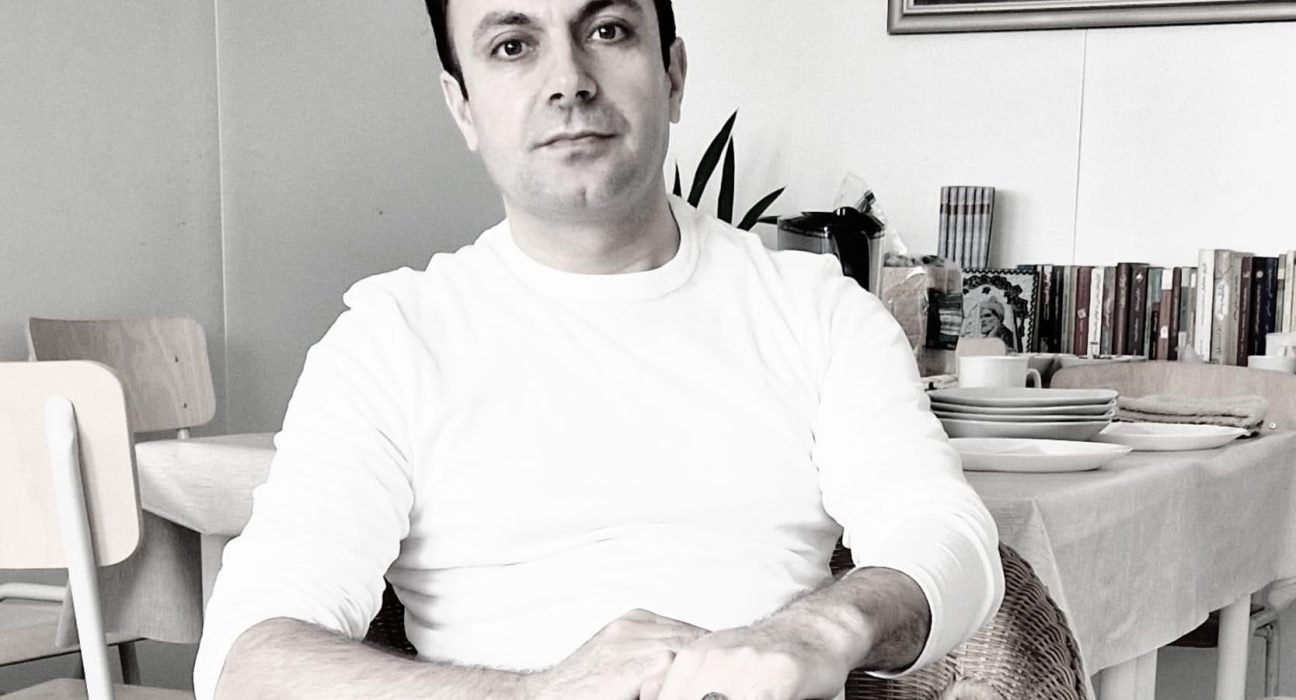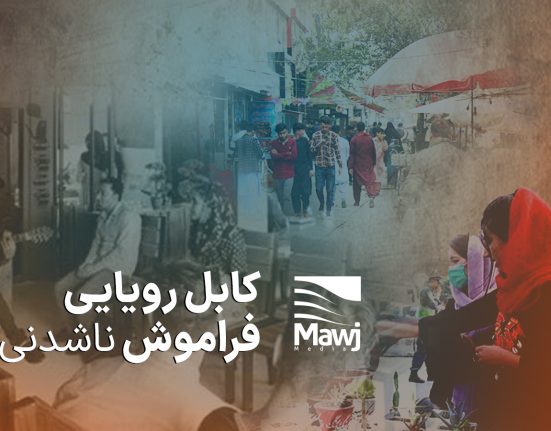Life is usually marked by a variety of good and difficult moments, but undoubtedly, people’s experiences of the highs and lows of life in different lands, cultures, and countries are not the same. Therefore, describing the life of an Afghan person who has faced many hardships might seem like a movie script to citizens of European countries.
Overall, the people of Afghanistan have faced a grim fate for over four decades due to external rivalries among major powers and internal factors, resulting in ongoing war and violence. Among these events, the collapse of the government and the fall to the Taliban on August 15, 2021, stands out as one of the worst days of at least the last two decades, causing a large number of people to be displaced. The repercussions of this displacement continue to affect the people of that land.
With the fall and handover of the republic to the Taliban, the economy of the cities is in ruins, the middle and urban classes are collapsing, and a large portion of them have sought refuge in Western and neighboring countries. Additionally, over the past year, government institutions and employees of various sectors have suffered severe damage. Former military personnel, media workers, human rights activists, and civil society members are under constant threat and are regularly assassinated and tortured in various cities across the country.
Reflecting on my own experience of displacement, living secretly in the country for nine months, I feel that this experience is shared by all displaced and at-risk Afghans whose lives and hopes were fundamentally destroyed after August 15. For those who have not experienced migration and leaving their homeland, the inner feelings and pains of a migrant may never be understood to the extent that it torments the migrant themselves.
For my wife and me, who in recent years had pinned our hopes on a better future for ourselves and our children in our homeland and had worked hard for it, the pain of losing hope and dreams in that land was immense. We never thought we would lose our home, job, and life and become refugees in another land.
Last year, after the fall of the republic government in Afghanistan, we were displaced for weeks and months within the country. Having worked in the media for over a decade and taught at Balkh University, I was well-known among the urban class of Afghanistan. My wife, Nadima, who in recent years had served as the head of human rights and gender at the Swedish Committee in the Balkh office, also faced severe security issues.
In the early days of the regime’s collapse, we left Mazar-i-Sharif and went to Kabul for over a month. However, I must admit that our relatives and acquaintances in Kabul, due to security threats from the Taliban and their own problems, did not welcome our presence.
We were forced, despite all the dangers, to stay in hotels in the Shahr-e-Naw area of Kabul, which were filled with refugees from other parts of Afghanistan. From there, we tried to leave the country by sending emails to various addresses, but we were unsuccessful. Eventually, despite all the problems and security threats in Mazar-i-Sharif, we returned there. Meanwhile, our house guard continuously contacted us, warning us of the Taliban’s threats. He reported that the Taliban were coming to our house, demanding weapons and vehicles.
Even though I never had a military background, the Taliban’s policy towards their armed and unarmed opponents was to force them to purchase weapons. As a result, my family and I were confined to our home for months, unable to leave even to buy food. My wife would contact her father and brother to buy our necessities from the city and secretly bring them to our home.
Life had become incredibly difficult for me in every way. Educational institutions were closed for months, and it was practically impossible to move around the city where I had lived and conducted civil and media activities for years. The city had turned into a complete prison to the extent that I didn’t even feel safe inside my own home. During these hard and difficult days, my only solace was the poetry of Mawlana Balkhi, known in the West as Rumi. This helped me maintain the morale of both myself and my wife.
Additionally, I organized a workout routine at home. Through YouTube, I resumed karate, which I had practiced in my youth but had abandoned during my university studies and subsequent media and academic work. After 15 years, I began practicing karate regularly at home.
My wife and I also wrote emails to various addresses set up by Western countries for individuals at risk, explaining our difficult situation. However, none of these addresses provided us with a positive response, despite having sufficient documentation of all our media, human rights, civil, and academic activities, which we sent to them.
In October, following the fall of the republic on August 15, my wife and I had a new baby, whom we named Shahrbano. Shahrbano is one of the original Persian names popular among cultural families in Afghanistan and Iran. However, during these difficult days, we didn’t know how to welcome the birth of our child amidst our displacement and helplessness.
On the other hand, our chances of leaving Afghanistan were further complicated by the lack of identification and a passport for our newborn child. Nevertheless, I would tell my wife, quoting Rumi’s mystical poetry, that “behind every hardship lies ease, just as a bright day comes after every dark night.” So, instead of focusing on the darkness of night, it is better to think about the day, light, and the sun. By uplifting our spirits in this way, we could surely find a solution.
In March 2022, we received approval from the German Foreign Ministry after enduring seven difficult months under Taliban rule. This approval was the result of the hard work and perseverance of professors at the University of Potsdam in Germany. From 2011 to 2016, the University of Potsdam had provided comprehensive support through the GIZ office to help us establish the Faculty of Public Administration and Policy in Afghanistan. The foundation of public administration at Afghan universities was laid with the developmental budget of the German Foreign Ministry, which is why they made significant efforts to help us escape the difficult conditions in Afghanistan. My family and I, along with other professors, are immensely grateful to them.
Returning to the main story, after receiving approval from the German Foreign Ministry, which recommended that we exit to Iran or Pakistan, we faced serious challenges because we didn’t have a passport for our newborn. The Taliban had made it extremely difficult to obtain passports, and the number of applicants at the passport and ID offices had increased significantly due to the mass exodus of millions of Afghans fleeing insecurity, economic hardship, and political turmoil.
Obtaining a passport was particularly challenging because my wife and I could hardly move around freely outside our home. Despite this, we made various efforts to obtain a passport, which involved many frustrating experiences. Eventually, a friend who worked in the External Relations Department of the Ministry of Higher Education guided me to write a request and gather travel documents showing that I needed to take my family with me for my studies abroad. The External Relations Department of the Ministry of Higher Education would then issue an official letter to the Kabul Passport Directorate to facilitate passport issuance.
This option seemed more feasible because I was a first-year PhD student at the University of Gujarat, India, in 2021. Unfortunately, after the collapse of the Afghan government, India severed all ties with Afghanistan, leaving thousands of Afghan students enrolled in Indian universities in limbo under Taliban rule.
I submitted my request to the central Ministry of Higher Education under Taliban administration since the security threats in Kabul were less severe compared to Balkh, and fewer people knew me in Kabul. I provided my academic documents and request to the relevant office, and they issued an official letter to the Kabul Passport Directorate. Despite the chaotic and crowded conditions at the Kabul Passport Directorate, I finally reached the passport distribution commission, and they processed the letter because it came from an office under their control.
Additionally, one of the clerics who was reportedly the newly appointed head of the passport office invited me to his office. Seeing that the letter was from Balkh University, he asked why I wanted to leave Afghanistan. I explained that I intended to go to India for further studies with my family since they had no guardian here. The Taliban are not as sensitive about travel to Asian countries, but if they find out someone is traveling to Western countries, they not only refuse to cooperate but confiscate all documents and prevent the person from leaving Afghanistan by taking guarantees from family members.
Ultimately, under the pretext of studying abroad, I managed to obtain a passport for the youngest member of our family. Then, after much difficulty and a month of effort, I secured a Pakistani visa at a high cost for myself and my family members. We discreetly vacated our home without informing neighbors and relatives and embarked on a grueling journey, finally reaching the Pakistan border at Torkham after several days.
At the Torkham border, the Taliban thoroughly inspected us. When they saw our computer and educational documents, they assumed we were heading to Western countries via Pakistan and began interrogating us. They claimed we had worked for Western offices. I told them that I was a student at Islamabad University in Pakistan and that my documents had nothing to do with foreign institutions. They then separated my six-year-old son, Shahryar, from us and asked him where his father was taking him. We had instructed our children beforehand to say that we were going to Pakistan because my father was studying there. Shahryar repeated my words to them, convincing the Taliban soldiers that our destination was not European countries. Thus, my family and I were allowed to cross the border into Pakistan.
The last image we took from Afghanistan was of the situation at the Torkham border. Children aged 6 to 10 were lined up before sunrise, trying to blend in with the travelers to smuggle a packet of cigarettes across the border. However, when the Taliban guards identified them, they beat the children with whips and rifle butts.
The suffering of these children is particularly distressing because, in addition to being deprived of a normal childhood, they bear the responsibilities of forty-year-old men. They are subjected to the poverty and harsh treatment of the Taliban, facing a bleak future.
After crossing Torkham, we contacted the GIZ office in Pakistan. They guided us to a guesthouse, and after 13 days, we successfully obtained our visas from the German embassy and headed to Germany.
Finally, we arrived in the land of Hegel, Kant, and Goethe, whose works are translated into Persian and have many readers. Here, we found the German people and society to be guided by humanistic values. Now, my family and I live in the city of Freiburg. I am engaged in karate at a local club, and my children attend school. Additionally, my wife and I strive to continue our education and contribute to humanitarian values and the academic field in accordance with our academic backgrounds.



